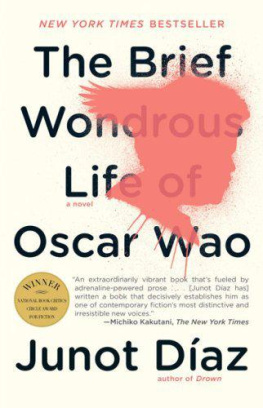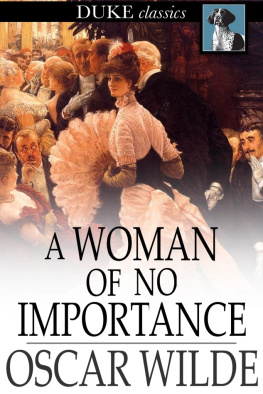Kate Christensen
The Great Man
Perhaps being old is having lighted rooms
Inside your head, and people in them, acting
People you know, yet cant quite name; each looms
Like a deep loss restored, from known doors turning,
Setting down a lamp, smiling from a stair, extracting
A known book from the shelves; or sometimes only
The rooms themselves, chairs and a fire burning,
The blown bush at the window, or the suns
Faint friendliness on the wall some lonely
Rain-ceased midsummer evening. That is where they live:
Not here and now, but where all happened once.
Philip Larkin, The Old Fools
THE NEW YORK TIMES, THURSDAY, AUGUST 9, 2001

Influential Figurative Painter Oscar Feldman Dies at 78
By GINA TSARKIS
Oscar Feldman, whose bold and innovative female nudes are among the most admired and influential artworks of recent years, died of a heart attack August 7 in the Riverside Drive apartment where hed lived with his wife and son for many decades. He was 78.
Until the end of his life, Mr. Feldman was a dedicated and accomplished artist, and his paintings are often shown in museums and galleries. For decades, he worked every day in his studio on the Bowery. Mr. Feldman was admired both for his prodigious output and the steadfastness of his artistic aims. Throughout his artistic career, his primary, indeed only, subject was the female nude.
The female body is the ultimate expression of truth and beauty, he wrote. I mean truth in all its ramifications: terror included, and death. Beauty likewise: There is a dead stinking creature in every perfect shell on the sand, and in many ways that is the whole point.
Oscar Avram Feldman was born April 5, 1923, in New York City. The son of an Orthodox Jewish butcher, he grew up on Ludlow Street on the Lower East Side. He attended P.S. 137 and 65, then Seward High School. Mr. Feldman was a Brooklyn College student in the early 1940s, when Jackson Pollock and other artists created the stylistic revolution that came to be known as Abstract Expressionism. After graduating with a degree in art history in 1945, Mr. Feldman briefly attended the Art Students League, but dropped out halfway through his first year to work as a taxi driver and paint on his own. He rented a loft on the Bowery, which he kept as his studio when he married Abigail Rebecca Lebowitz in 1955 and moved to Riverside Drive. Their son and only child, Ethan Saul Feldman, was born in 1959 and was diagnosed with severe autism at the age of three.
Largely self-taught, Mr. Feldman chose deliberately not to follow the Abstract Expressionists path, preferring instead to work in the figurative vein that characterized his work until the end of his life. Mr. Feldman expressed admiration for Philip Guston alone of his near contemporaries. Mr. Guston abruptly abandoned abstraction for the cartoonlike, strangely passionate, rough drawings that shocked the art world in the 1960s.
Mr. Feldmans nudes are characterized by the boldness of his brush strokes and palette. He painted women as complex and earthy, never idealized or purely sexualized. His treatment of skin in particular, or flesh, as he liked to call it, was notable for its range of colors and textures. The flesh, not the eye, he wrote, is the portal to the soul.
Oscar Feldmans work was bold and original and gives definition to those two words, said Earl A. Powell, director of the National Gallery of Art. His work was exciting, determined, and passionate. He made a huge contribution to postwar art.
Hilton Kramer, the idiosyncratic and often lacerating art critic and editor of The New Criterion, has described Mr. Feldmans work as ballsy almost to the point of testicular obnoxiousness, going up to but never crossing that line.
If not widely known to the general public, his paintings are prized by collectors and are housed in many leading museums, including the National Gallery of Art, the Hirshhorn Museum, the Museum of Modern Art, and the Whitney Museum of American Art. His full-size paintings routinely sell for more than $1 million.
Mr. Feldman led a life of relative isolation from the rest of the art world by choice. He also disavowed politics and any connection with the antiwar movement. In 1987, when he was honored by the Guggenheim Museum, he came to the reception wearing a guayabera shirt and work trousers spattered with paint. He was a larger-than-life figure, by all accounts opinionated, occasionally boisterous, visceral, with insatiable appetites of many kinds.
In 1976, he was inducted into the American Academy of Arts and Letters, and he received a National Medal of Arts from the National Endowment for the Arts in 1986.
When I think of art, I think of women, he wrote, riffing on Agnes Martins famous lines. Women are the mystery of life.
He leaves behind his wife, Abigail, their son, Ethan, and his sister, the well-known abstract painter Maxine Elizabeth Feldman.
Its amazing how well you can live on very little money, said Teddy St. Cloud to Henry Burke over her shoulder as she strode into the kitchen of her Brooklyn row house. She hoped he was noticing that her hips and waist were still girlishly slender, her step youthful, and that hed describe her accurately instead of saying she was gaunt but chipper, like that sour-faced squaw with the crooked teeth from The New Yorker whod written the profile of Oscar a few years ago. I hope youre a Reform Jew, she added. I got prosciutto.
Im not Jewish, he said after a second of displacement. They stood somewhat awkwardly together in the kitchen, not sure suddenly where to go now that their short walk down the hall had disgorged them into their destination. But people often think
Burke, she said. Thats not the Ellis Islandization of Berkowitz?
No, said Henry. Its English.
She leaned against the counter, her eyes fixed on some middle distance in her mind. She suspected that she looked much older in person than Henry had expected, but then, of course, she was seventy-four, and the person hed no doubt been expecting, unconsciously, to meet was the young woman Oscar had fallen in love with. But she was proud of the fact that as old as she was, she still resembled her younger self. Her oval, narrow face had aged markedly, with shallow grooves running along both sides of her nose, slight hoods over her eyes, a subtle lengthening of the earlobes, a thinning of the lips, a network of extremely fine wrinkles around her eyes. But she held her small, well-shaped head very high, with the self-aware edge of mischief and manipulation Oscar had loved, eyes glittering foxily, as if she were about to snap out of her feigned concentration and laugh at her observer for being fooled into thinking she hadnt been watching him all along. This air of expressive, confident intelligence, Oscar had told her, was one of the sexiest qualities about her, the electric flame that ran almost visibly soft and licking over her skin, hinting at interesting flare-ups. Then he had added that having incredible boobs didnt hurt.
Please sit down, said Teddy; she intended it as a command. She wasnt impressed by Henry. She guessed that he was forty or thereabouts. He looked like a lightweight, the kind of young man you saw everywhere these days, gutless and bland. He wore soft cotton clothing, a little rumpled from the heat and long drive in the car she would have bet it was a Volvo. She could smell domesticity on him, the technologically up-to-date apartment on the Upper West Side, the ambitious, hard-edged wife women were the hard ones at that age. Men turned sheepish and eager to please after about forty. Oscar had been the same way; hed turned into a bit of a hangdog at around forty and hadnt fully regained his chutzpah until hed hit fifty or so, but even then, she had never lost interest in him, and she was still interested in him now, even though he was gone.

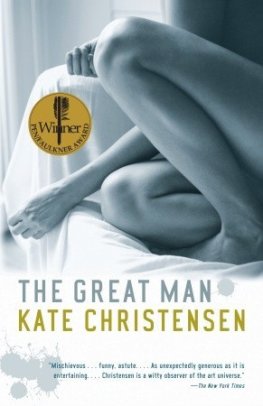

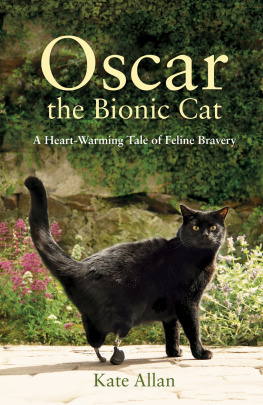
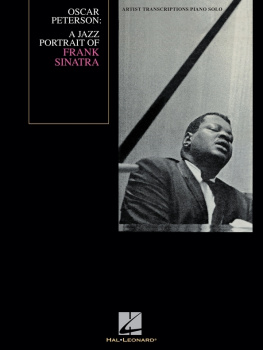
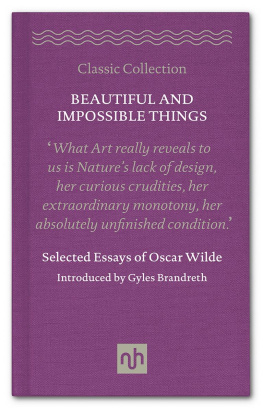
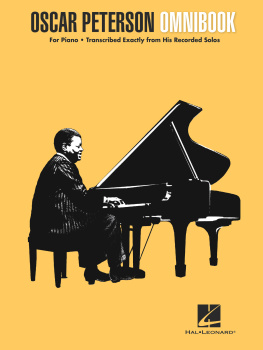
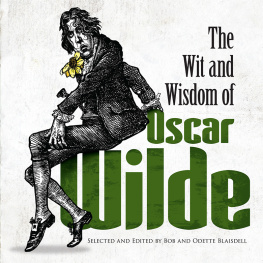
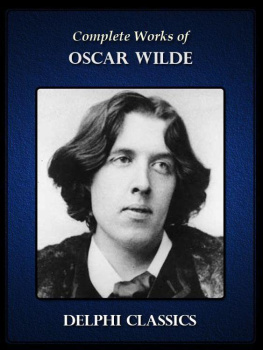
![Wilde Oscar - The secret life of Oscar Wilde: [an intimate biography]](/uploads/posts/book/228457/thumbs/wilde-oscar-the-secret-life-of-oscar-wilde-an.jpg)
